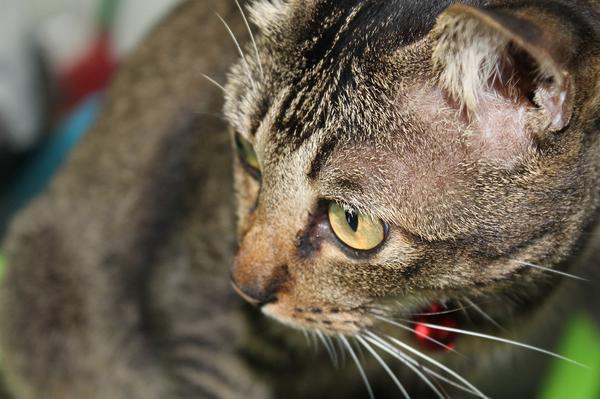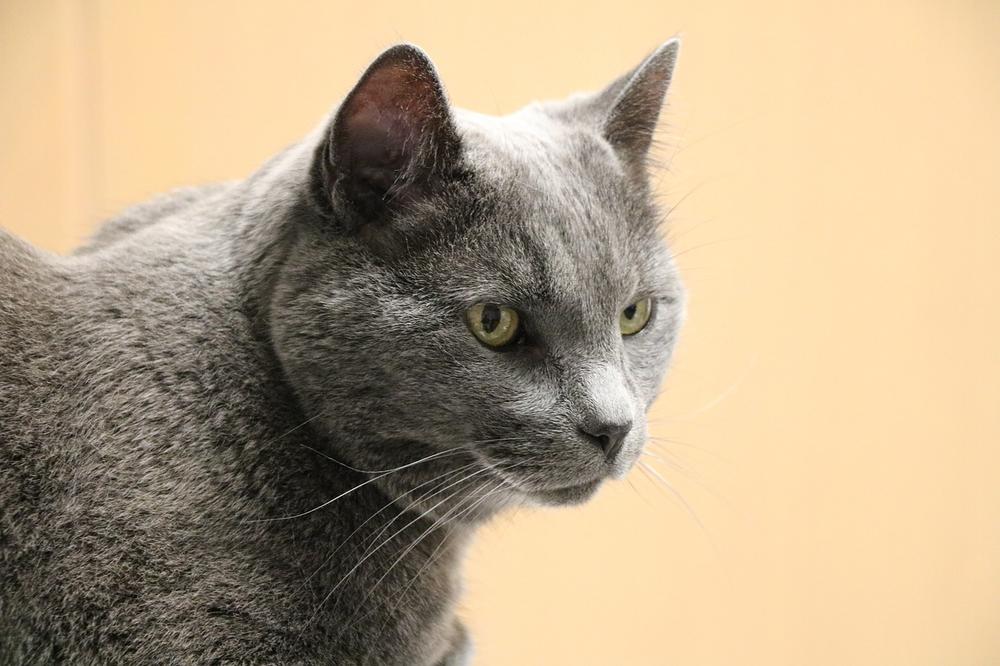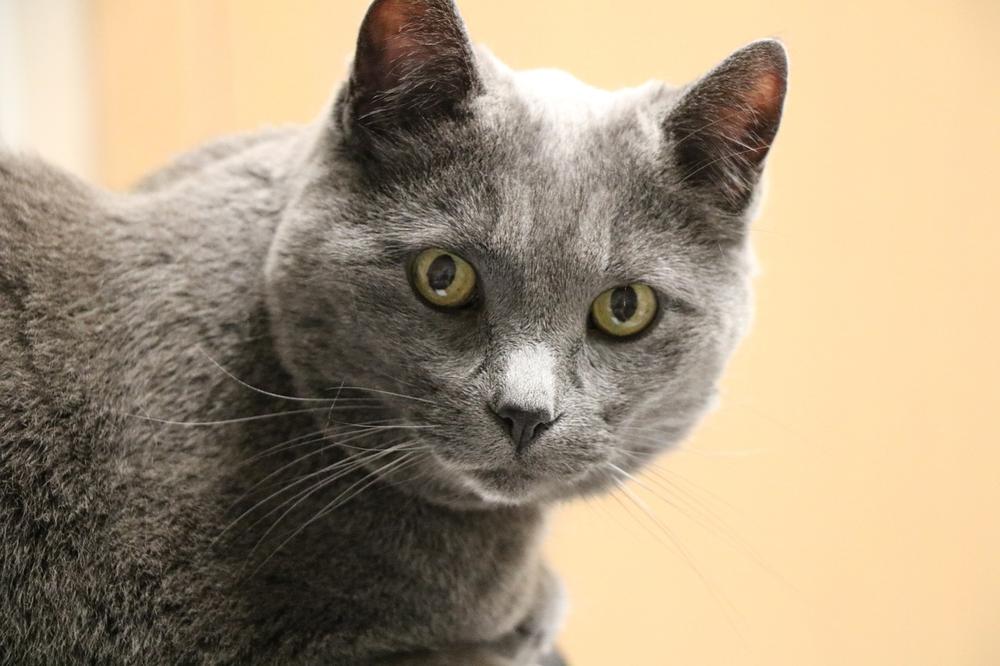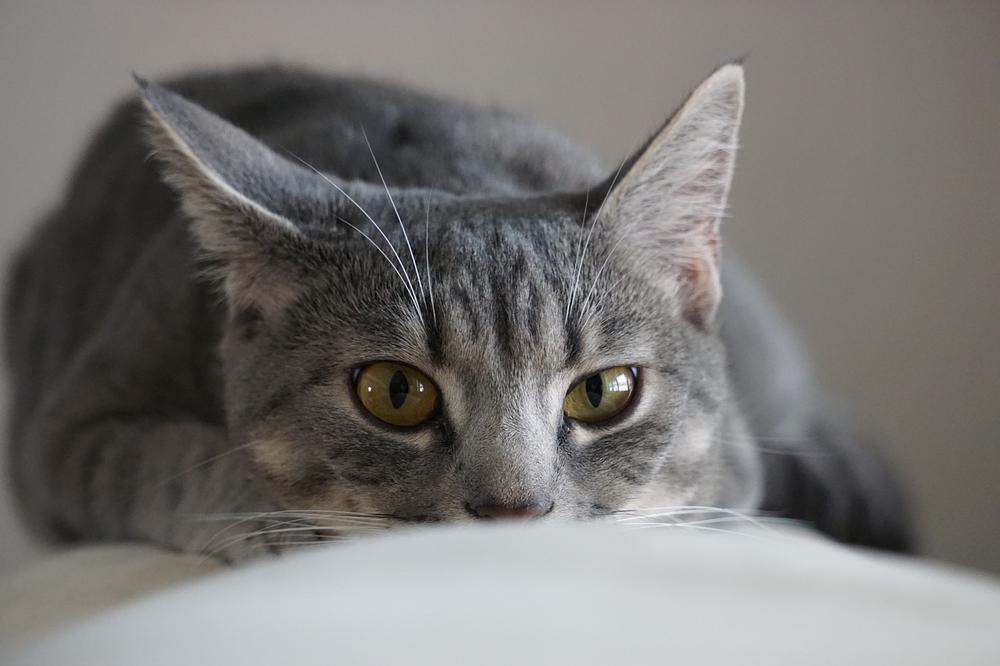Top Reasons Why Your Older Cat Won't Eat but Still Drinks

Visualize this:
Your beloved feline friend is getting up there in years, but lately, they haven't had much of an appetite. 😔
Your heart sinks as you worry about their health and wellbeing.
But before you panic, take a deep breath and keep reading.
Common Reasons Why Older Cats Don't Eat
If your older cat is not eating, it can be stressful and worrying.
There are several common reasons why older cats may experience appetite loss:
- Illness or pain: Cats are masters at hiding their pain, so if they're not eating, it's important to consider that they might be experiencing physical discomfort due to an underlying health issue.
- Dental problems: Aging cats often develop dental issues such as gum disease or tooth decay, which can make eating painful or difficult for them.
- Stress and changes in routine: Older cats can become easily stressed by changes in their environment, such as moving to a new house or the introduction of a new family member. This stress can lead to a decreased appetite.
- Medication side effects: Some medications that older cats may be taking can cause a loss of appetite as a side effect.
- Cognitive dysfunction: Similar to humans, older cats can develop cognitive issues that affect their eating patterns. They may forget where their food bowl is or lose interest in eating.
You must closely observe any changes in behavior and consult with your veterinarian to determine the underlying cause of your cat's appetite loss.

Remember, early intervention can greatly improve their quality of life. 😺
Main points I'll expand upon further down this article:
- Pay attention to your older cat's mood and habits.
- Loss of appetite can indicate underlying health conditions.
- Common illnesses that can lead to appetite loss include hyperthyroidism, diabetes, and kidney disease.
- Dental issues, allergies, and food preferences can also contribute to appetite loss.
- Increased thirst may be a sign of underlying health conditions.
- Regular monitoring of litter box can help identify potential issues.
- Treatments for hyperthyroidism may involve medication, radioactive iodine therapy, or surgery.
- Dental issues may require veterinary attention for diagnosis and management.
- Early diagnosis and treatment are crucial for managing kidney disease.
- Seek veterinary help for any persistent loss of appetite or signs of illness.
Now, you might be wondering how you can address the issue of appetite loss in your older cat.
Well, buckle up because in the next section, we'll explore effective solutions and strategies to help get your feline friend back to enjoying their meals again.
Stay tuned for some pawsome insights!
Signs of Appetite Loss in Older Cats
When it comes to older cats and appetite loss, there are a few things you should be on the lookout for:
- If your cat is losing weight, whether it's sudden or gradual, it could mean they're not eating as much.
- Pay attention to how your cat is acting and if they seem more distant or secretive about their emotions.
- If your older cat keeps drinking but won't touch their food, it might be their way of telling you something is wrong.
- To make sure your cat is healthy, try to figure out what might be causing any discomfort. Look for other signs like vomiting or changes in behavior.
- Keep an eye on your cat's food intake and their litter box. Any changes in eating habits or elimination could give you important clues about their health.
- As cats get older, they may not have the same appetite they once did. They might experience decreased appetite or even eat less than usual.
- If you notice any concerning signs, it's important to consult your veterinarian. They can help figure out what's causing the problem and provide the right treatment.
By remaining vigilant and intervening as necessary, you can contribute to maintaining the well-being of your senior feline.

But, you might be wondering, what are some underlying factors that could be causing appetite loss in older cats?
Well, I'm here to shed some light on a few potential issues and their corresponding solutions...
Health Issues That Affect a Senior Cat's Appetite
Senior cats can experience several health issues that can affect their appetite.
Here are some important things to know:
- Hyperthyroidism is an overactive thyroid condition that can lead to weight loss and decreased appetite in older cats. Treatment options may include medication, radioactive iodine therapy, or surgical removal of the thyroid glands.
- Dental issues, such as tooth decay, can contribute to appetite loss. Regular dental check-ups and proper oral care are essential for maintaining your cat's appetite.
- Allergies, especially food allergies, can decrease appetite. Veterinary attention is necessary for diagnosis and management.
- Increased thirst in cats can be a symptom of underlying health conditions like hyperthyroidism, diabetes, or kidney disease. Monitoring your cat's litter box for any changes can help identify potential issues.
- Early diagnosis of kidney disease through blood and urine tests is crucial for effective management. Treatment options may involve dietary changes and supplements.
- Increased thirst can also indicate diabetes in older cats, which may be accompanied by increased hunger, lethargy, excessive urination, and weight loss.
- Kidney disease often presents with extreme thirst as an initial symptom, caused by factors like accidental poisoning, urinary tract infections, liver disease, or dehydration due to vomiting or diarrhea.
Remember to seek veterinary advice for any concerns about your senior cat's appetite and in essence health.
And I understand that your concerns about your senior cat's appetite may extend to other situations as well.
If you're also worried about your pregnant cat not eating or eating less, I have written a helpful guide that provides possible reasons for this behavior.
You can find more information in my article Why Is My Pregnant Cat Not Eating.
Tips for Encouraging an Older Cat to Eat
To encourage your older cat to eat, try implementing these 12 helpful tips:
- Provide an elevated feeding area for easier access.
- Warm up their food or add water to make it more enticing.
- Offer smaller and more frequent meals throughout the day.
- Monitor eating habits closely for any changes or concerns.
- Consult with your veterinarian about appetite-stimulating medications.
- Include small amounts of wet food during mealtimes.
- Ensure access to dry food is available all day long.
- Consider using a kitty water fountain to promote hydration.
- Create a calm and quiet eating environment.
- Check the cleanliness of their feeding bowls regularly.
- Experiment with different feeding locations if needed.
- Minimize stress factors in their surroundings.
By adhering to these uncomplicated instructions, you can support your senior feline in preserving a robust desire for food and overall thriving.
And now, for the crucial next step in ensuring your older cat's well-being and happiness...

Providing them with the right nutrition.
But did you know that feeding them the wrong food can lead to dehydration, nutrient deficiencies, and even weight loss?
Let me show you how proper diet can make all the difference for your beloved feline companion.
Trust me, you won't want to miss out on these essential tips!
Importance of Proper Nutrition for Senior Cats
Senior cats need a special diet as they get older. You have to make sure they are getting all the right nutrients to stay healthy.
As cats age, their bodies don't absorb nutrients as well as they used to.
So you ought to give them cat food made specifically for seniors.
This food should have stuff like taurine, vitamins, minerals, and antioxidants.
These things will help keep their immune system strong, their joints healthy, and in essence keep them feeling lively.
It's really important that you feed your senior cat food that is high in quality protein and calories.
Why?
Well, good quality protein helps build strong muscles and supports their joints.
And calories?
They need those to stay active and full of energy!
Feeding your senior cat the right food can actually prevent a lot of health problems.
By giving them all the essential nutrients they need, you can make sure they don't get dehydrated, have imbalances in their body, or become nutrient deficient.
Plus, it helps maintain their weight and promotes healing when they're sick.
So, ensure you add some canned or moist food to their diet.
It will help them stay hydrated, which is super important for older cats.
Now, we know it's tempting to share our favorite human foods with our cats.
But trust me on this one — it's best to keep those away from senior cats. Human foods might not have all the necessary stuff they need, and that could affect their all in all wellbeing. Stick to cat food made just for them, and they'll be happy and healthy.
Let me break it down for you: Further down the blog post, I'll provide information on when to seek veterinary help for a cat's decreased appetite. So keep reading to ensure you have all the necessary knowledge for your senior cat's wellbeing.
Managing Weight Loss in Older Cats
To support your senior cat experiencing weight loss, try offering smaller, frequent meals rather than large ones. This helps aid digestion and ensures they get the necessary nutrients. You can also offer healthy snacks between meals to help them gain weight.
You ought to create a personalized diet plan based on their needs and regularly monitor their weight.
By determining the correct portion sizes according to their resting metabolic demands, you can manage their in essence weight effectively. Remember, taking care of your senior cat is all about finding what works best for them.
When to Seek Veterinary Help for a Cat's Decreased Appetite
Don't mess around when it comes to your cat's lack of appetite.
You've gotta get in touch with a vet ASAP, no excuses.

Here are some solid reasons you should definitely be making that call:
- If your senior kitty is shedding pounds like crazy and you can't figure out why, it's time to chat with a vet so they can suss out the root cause.
- When your furball consistently gives food the cold shoulder for more than a couple days, you gotta bring in the pros to check for any potential health issues.
- If your cat's not feeling chow time and they're also throwing up, having diarrhea, acting sluggish, or struggling to breathe, don't even think about waiting. Drop everything and seek immediate help from a vet. 🚑
- Now, cats might sometimes go on short hunger strikes due to stress or changes in their surroundings. But if this disinterest in grub goes on for more than a few days, it's time to give the vet a shout-out.
- Listen up, if your fluffy pal already has medical problems and suddenly loses their appetite, you need to keep an eye on 'em and reach out to a vet without hesitation.
Dragging out a cat's lack of interest in food could lead to big-time health issues that seriously put their well-being at risk.
But here's the good news:
With quick action and proper care from a vet, we can give our favorite feline buddies the best shot at a long and healthy life.
You heard me - don't waste another second, pick up that phone, and dial your vet right now!
And that wraps up today's article.
If you wish to read more of my useful articles, I recommend you check out some of these: How Long Can a Cat Survive Locked in a Shed, How Long Can Cats Hold Their Pee, How Cold Can Cats Survive Outside, Why Is My Senior Cat Losing Its Whiskers, and How Long Can a Cat Go Without Water
Talk soon,
-Sarah Davis